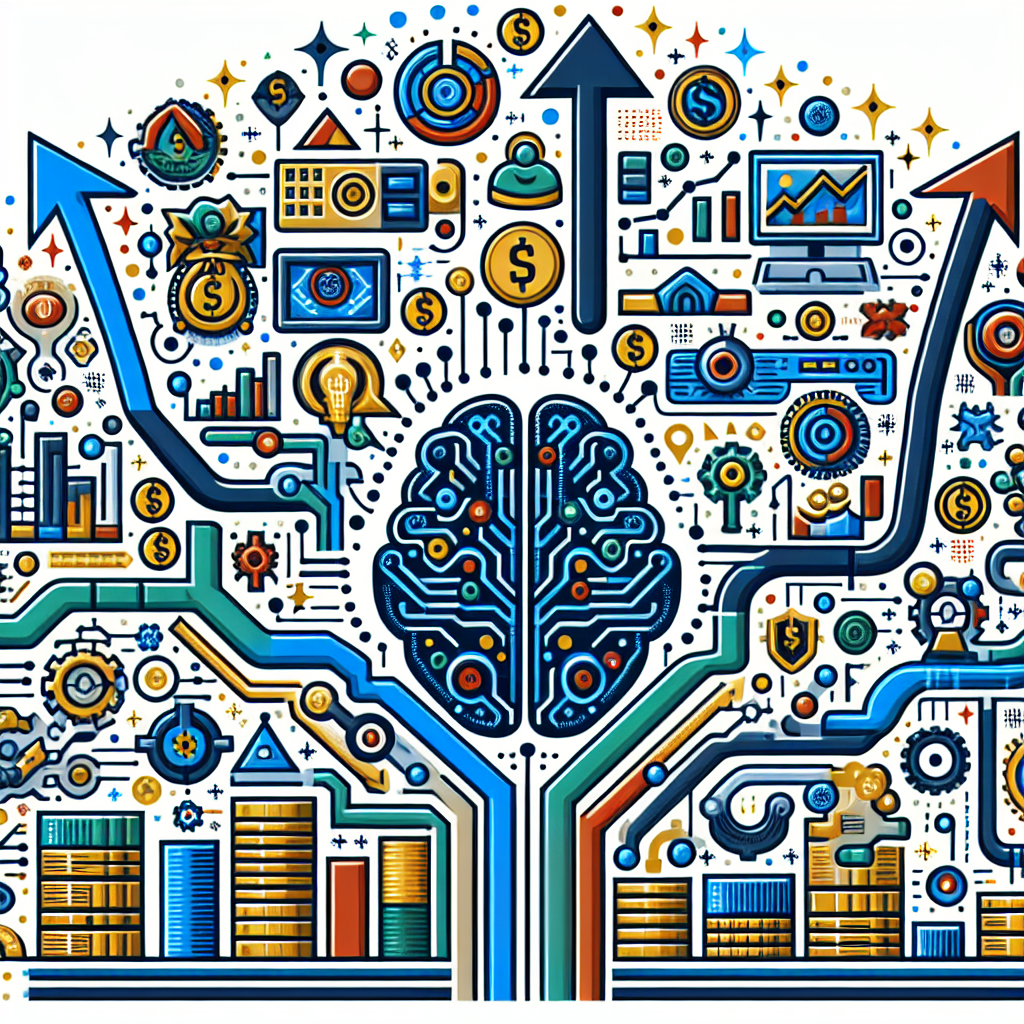The hospitality industry is one of the most competitive sectors in the world, with businesses constantly seeking ways to improve efficiency, boost revenue, and enhance customer satisfaction. In recent years, artificial intelligence (AI) has emerged as a powerful tool for helping businesses in the hospitality industry achieve these goals. One area where AI is particularly beneficial is revenue forecasting.
AI-powered revenue forecasting uses advanced algorithms and machine learning techniques to analyze historical data, market trends, and other relevant factors to predict future revenue streams. This technology allows businesses to make more accurate revenue projections, optimize pricing strategies, and identify opportunities for growth. In this article, we will explore the benefits of AI-powered revenue forecasting in the hospitality industry and how it can help businesses stay competitive in a rapidly evolving market.
1. Improved Accuracy and Efficiency
One of the key benefits of AI-powered revenue forecasting is its ability to provide more accurate and reliable predictions than traditional forecasting methods. AI algorithms can analyze large volumes of data in real-time, identify patterns and trends, and make predictions with a high degree of accuracy. This can help businesses make more informed decisions about pricing, inventory management, and marketing strategies.
In addition to accuracy, AI-powered revenue forecasting is also more efficient than manual forecasting methods. Traditional forecasting methods often require a significant amount of time and resources to collect, clean, and analyze data. AI algorithms can automate much of this process, allowing businesses to generate revenue forecasts quickly and easily. This can save businesses time and resources, allowing them to focus on other aspects of their operations.
2. Dynamic Pricing Optimization
Another benefit of AI-powered revenue forecasting is its ability to optimize pricing strategies in real-time. AI algorithms can analyze market trends, competitor pricing, customer behavior, and other factors to determine the optimal price for a product or service. This can help businesses maximize revenue, attract more customers, and stay competitive in a crowded market.
Dynamic pricing optimization is particularly important in the hospitality industry, where demand fluctuates based on factors such as seasonality, events, and economic conditions. AI-powered revenue forecasting can help businesses adjust pricing in real-time to capitalize on changes in demand and maximize revenue potential. This can help businesses increase profitability and stay ahead of the competition.
3. Enhanced Customer Experience
AI-powered revenue forecasting can also help businesses enhance the customer experience by providing personalized pricing and promotions. By analyzing customer data and preferences, AI algorithms can tailor pricing and promotions to individual customers, increasing the likelihood of conversion and customer satisfaction.
Personalized pricing and promotions can help businesses build loyalty and drive repeat business, leading to higher revenues and profitability. AI-powered revenue forecasting can also help businesses identify opportunities for upselling and cross-selling, further increasing revenue potential.
4. Forecasting Accuracy
One of the key benefits of AI-powered revenue forecasting is its ability to provide accurate and reliable predictions. AI algorithms can analyze large volumes of data, identify patterns and trends, and make predictions with a high degree of accuracy. This can help businesses make more informed decisions about pricing, inventory management, and marketing strategies.
AI-powered revenue forecasting can also help businesses identify potential risks and opportunities, allowing them to take proactive measures to mitigate risks and capitalize on opportunities. By providing accurate and reliable revenue forecasts, AI-powered revenue forecasting can help businesses stay competitive in a rapidly evolving market.
5. Scalability and Flexibility
AI-powered revenue forecasting is highly scalable and flexible, allowing businesses to adapt to changing market conditions and business needs. AI algorithms can be easily customized to meet the specific requirements of a business, allowing businesses to generate revenue forecasts that are tailored to their unique needs and objectives.
AI-powered revenue forecasting can also be easily integrated with other business systems and processes, allowing businesses to leverage the power of AI across their operations. This scalability and flexibility can help businesses stay competitive and agile in a rapidly changing market.
FAQs:
Q: How does AI-powered revenue forecasting differ from traditional forecasting methods?
A: AI-powered revenue forecasting uses advanced algorithms and machine learning techniques to analyze large volumes of data and make accurate predictions. Traditional forecasting methods often rely on manual data collection and analysis, which can be time-consuming and less accurate.
Q: How can AI-powered revenue forecasting help businesses increase profitability?
A: AI-powered revenue forecasting can help businesses optimize pricing strategies, identify opportunities for growth, and improve efficiency. By providing more accurate revenue forecasts, businesses can make informed decisions that maximize profitability.
Q: Is AI-powered revenue forecasting suitable for businesses of all sizes?
A: Yes, AI-powered revenue forecasting can be beneficial for businesses of all sizes. Small businesses can use AI-powered revenue forecasting to make more informed decisions and stay competitive, while larger businesses can leverage AI to optimize pricing, inventory management, and marketing strategies.
In conclusion, AI-powered revenue forecasting offers a wide range of benefits for businesses in the hospitality industry. From improved accuracy and efficiency to dynamic pricing optimization and enhanced customer experience, AI-powered revenue forecasting can help businesses increase profitability, stay competitive, and drive growth. By harnessing the power of AI, businesses in the hospitality industry can unlock new opportunities and achieve their revenue goals.

